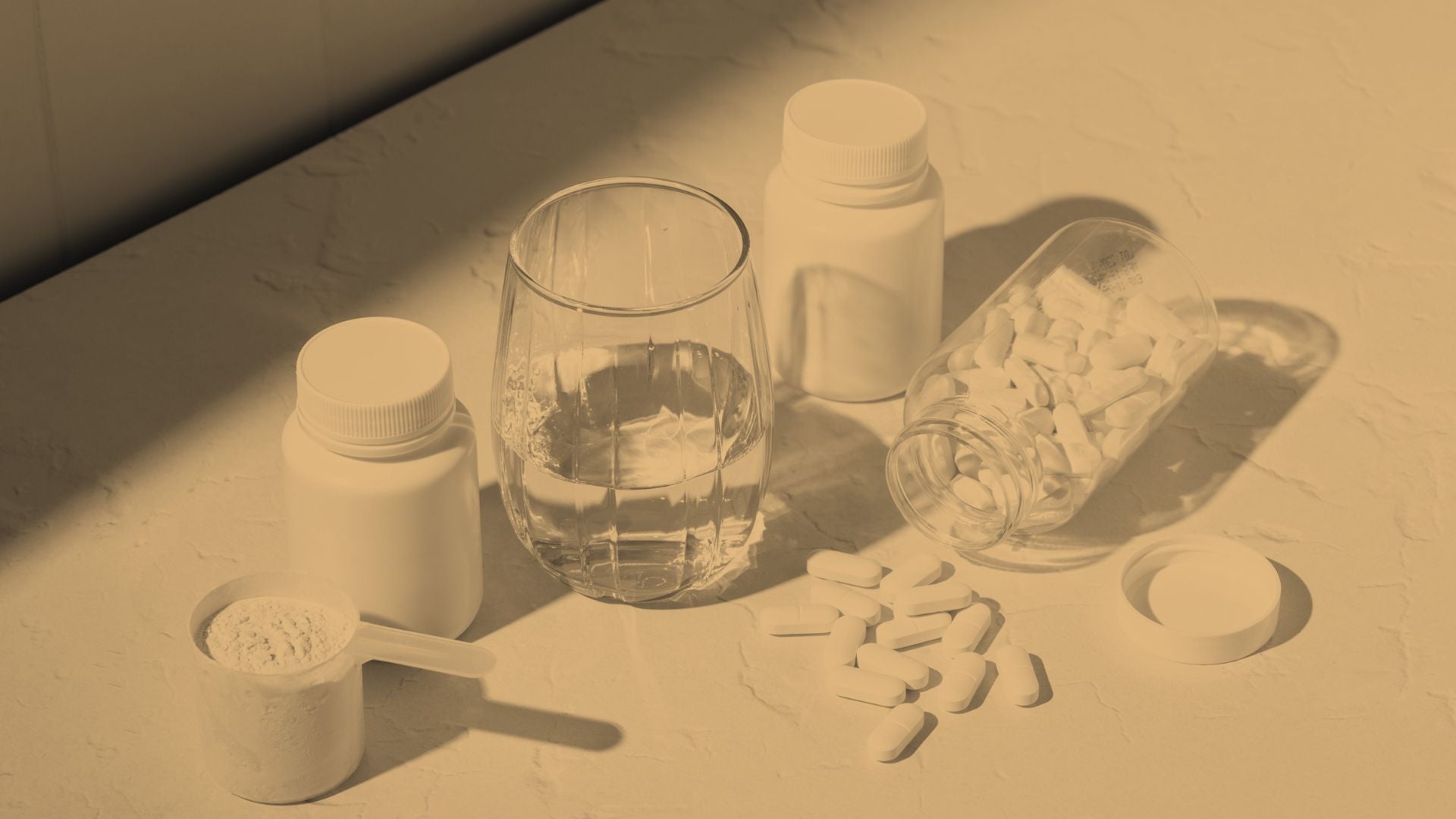
Supplements vs. IV Therapy for Hangover Relief
When you’ve had a fun night out with friends and consumed one too many alcoholic beverages, the next day’s hangover symptoms can be bad enough that you might find yourself desperately searching for a foolproof hangover treatment.
Lots of people out there claim that IV hydration is one of the most effective hangover cures they’ve ever tried—but from an evidence-based perspective, how does getting fluids by IV infusion compare to taking supplements formulated to support hangover recovery?
As we answer this question, we’ll address key aspects of the two hangover remedies, including how quickly they work to relieve the unpleasant aftereffects of alcohol, how effective the science says they are, the risks associated with each, and logistical factors like cost and convenience.
Comparing Supplements and IV Therapy
How do they work?
Supplements are taken by mouth in the form of capsules, tablets, or in some cases, liquids such as tinctures.
IV therapy for hangovers bypasses the digestive system entirely to deliver the following substances directly into the bloodstream:
- Electrolytes like calcium and magnesium
- Vitamins and other potentially beneficial compounds like B12, taurine, and glutamine
- In some cases, medications like ondansetron (also known as Zofran)
This means it requires the presence of a trained nurse to safely insert an IV into your vein and start the infusion.
How quickly do they work?
The main benefit of IV infusions is that they work faster than supplements by design. Because they bypass the digestive system, the IV begins having an effect right away, which means any symptom relief it might provide happens sooner. (This is part of why IVs are often used in emergency medical situations.) An average IV therapy session for hangovers takes about 30 to 45 minutes, and most people who get them say they feel the most benefits within two to four hours.
Supplements can vary significantly in how long they take to work. (For instance, water-soluble vitamin supplements take effect more quickly than fat-soluble vitamin supplements.) However, because they must be digested and processed by the body, they typically take several hours to kick in at a minimum, meaning that they are not typically as fast as IV hangover relief.
How effective are they?
Although anecdotal evidence—specifically, people claiming that IV therapy was extremely effective in relieving their hangovers—suggests that IV infusions might be effective for relieving hangover symptoms, there isn’t great data to support their use in these cases.
For instance, one randomized controlled trial found that administering IV saline to acutely intoxicated people in the ER did not reduce their stay or help them wake up sooner, and another more recent study had similar findings.
Hangover supplements can vary in their efficacy, but as long as they contain ingredients that have been demonstrated in research to relieve hangover symptoms, they are likely to be at least somewhat effective.
How risky are they?
Even when it’s done by a trained and skillful nurse, there is always some risk associated with having your vein punctured to put in an IV, most notable being the risks of an infection or blood clot developing at the site of the injection.
According to the University of Rochester Medical Center, doctors generally don’t recommend giving IV fluids “unless a patient cannot keep anything down, especially water.” They also note that it is important that you get bloodwork checked before beginning to receive IV hangover therapy to ensure that it isn’t contraindicated for your medical situation.
By contrast, while supplements can have side effects of their own, there are no significant inherent risks to swallowing a capsule or pill.
How unpleasant are they?
Nobody likes being poked with a needle, and that’s an unavoidable part of getting an IV. In some cases, the nurse might have to stick you several times to succeed in finding a vein. This can be painful and potentially lead to bruising after the fact.
Compare this to taking a supplement, which is as simple as swallowing a capsule or two, and it’s clear that supplements are the clear winner when it comes to ease, convenience, and overall comfort.
How much do they cost?
Health insurance won’t cover IV hangover treatments, since they’re not a medical necessity, so you can expect to pay the entirety of the $100 to $400 average price tag yourself. Another source estimates that the costs of this service at walk-in “clinics” or via house call (for an at-home IV) can range from $80 to $875 per visit.
It’s impossible to make a blanket statement about the cost of every hangover-related supplement, since there are so many on the market, but to take Capsulyte’s supplements as an example:
- PREGAME costs $24.99 for 14 servings, or about $1.78 per dose.
- HYDRATION costs $19.99 for 14 servings, or about $1.43 per dose.
When a single IV infusion can cost anywhere from $80 to $875, the combination of Capsulyte’s PREGAME and HYDRATION only costs $3.21 per dose. The math is clear: supplements are affordable, and IV therapy is exorbitantly expensive and out of reach for the average person.
Supplements To Take Before and After Drinking
Convinced that supplements are the way to go when it comes to supporting your body’s recovery from alcohol consumption?
Try these supplements from Capsulyte, which were formulated by Dr. Dan Nguyen, MD, MBA to include ingredients backed by scientific data:
Before Drinking: Take PREGAME
PREGAME contains DHM, NAC, Clovinol® (clove extract), and Siliphos® (milk thistle extract).
After Drinking: Take HYDRATION
HYDRATION helps your body alleviate hydration and return to a state of electrolyte balance, helping to relieve dehydration-related hangover symptoms. It contains Hydra 4G™ (a blend of sodium, potassium, magnesium, and calcium), B vitamins, zinc, and Liposomal Pureway C™ (a highly bioavailable form of vitamin C).


